27.09.2025.
Minister Gašić attends ceremony marking 107th anniversary of Salonika Front breakthrough
Minister of Defence Bratislav Gašić attended today a ceremony commemorating the 107th anniversary of the Salonika Front breakthrough. The ceremony was held at the Serbian Military Cemetery at Zeitenlik, Thessaloniki.
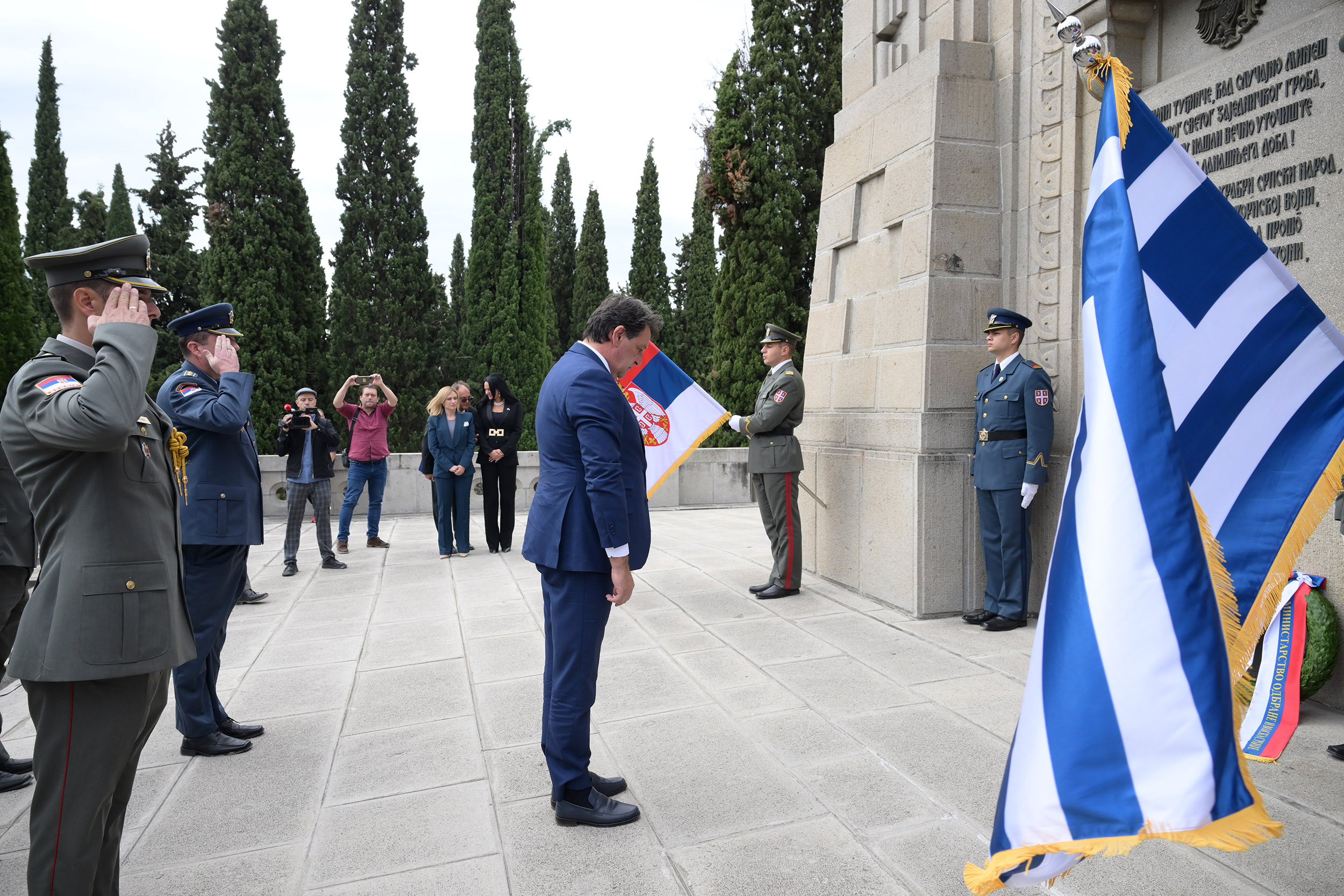 The commemorative ceremony was led by the Minister of Labour, Employment, Social, and Veteran Affairs, Milica Đurđević Stamenkovski, who also serves as President of the Committee for Nurturing the Traditions of the Liberation Wars of Serbia.
The commemorative ceremony was led by the Minister of Labour, Employment, Social, and Veteran Affairs, Milica Đurđević Stamenkovski, who also serves as President of the Committee for Nurturing the Traditions of the Liberation Wars of Serbia.Minister Gašić and Minister Đurđević Stamenkovski laid wreaths near the Mausoleum at the Serbian Military Cemetery, paying tribute to Serbian soldiers. They also paid homage to Đorđe Mihailović, a long-time Serbian Military Cemetery caretaker, by placing flowers on his grave.
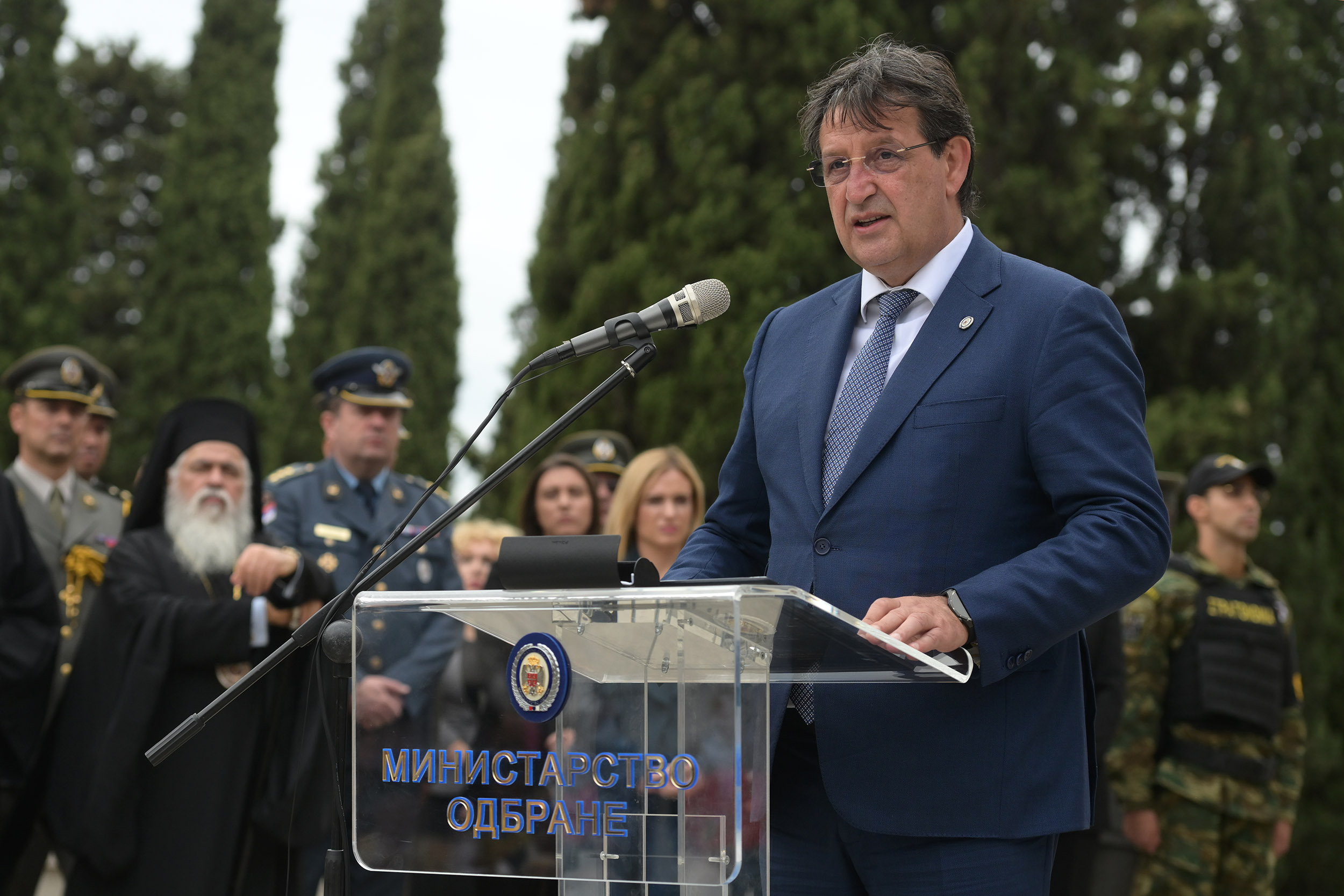 At the beginning of his address, the Minister of Defence emphasized that Zeitenlik is a temple and an eternal Serbian military installation that stands as a testament to the heroism and patriotism of every Serb.
At the beginning of his address, the Minister of Defence emphasized that Zeitenlik is a temple and an eternal Serbian military installation that stands as a testament to the heroism and patriotism of every Serb.- Across more than seven thousand square metres, lie the remains of 22,000 soldiers, including as many as 8,000 Serbian warriors. It is here that these awe-inspiring giants of military history found their eternal rest. They had one thing in common – a steadfast belief in ultimate victory. Zeitenlik is not merely a military cemetery, it is a place where Serbian, French, Italian, English, and Russian soldiers, who fell during the Salonika Front breakthrough in the First World War, are laid to rest. This is a place where silence and memories reign, a place guarded by tall cypress trees from Hilandar, standing like an eternal guard – said Minister Gašić.
He noted that preparations for the construction of the memorial complex began as early as 1926, when Savo Mihailović was appointed to lead a team charged with collecting the remains of fallen soldiers, a mission during which they visited more than 250 cemeteries.
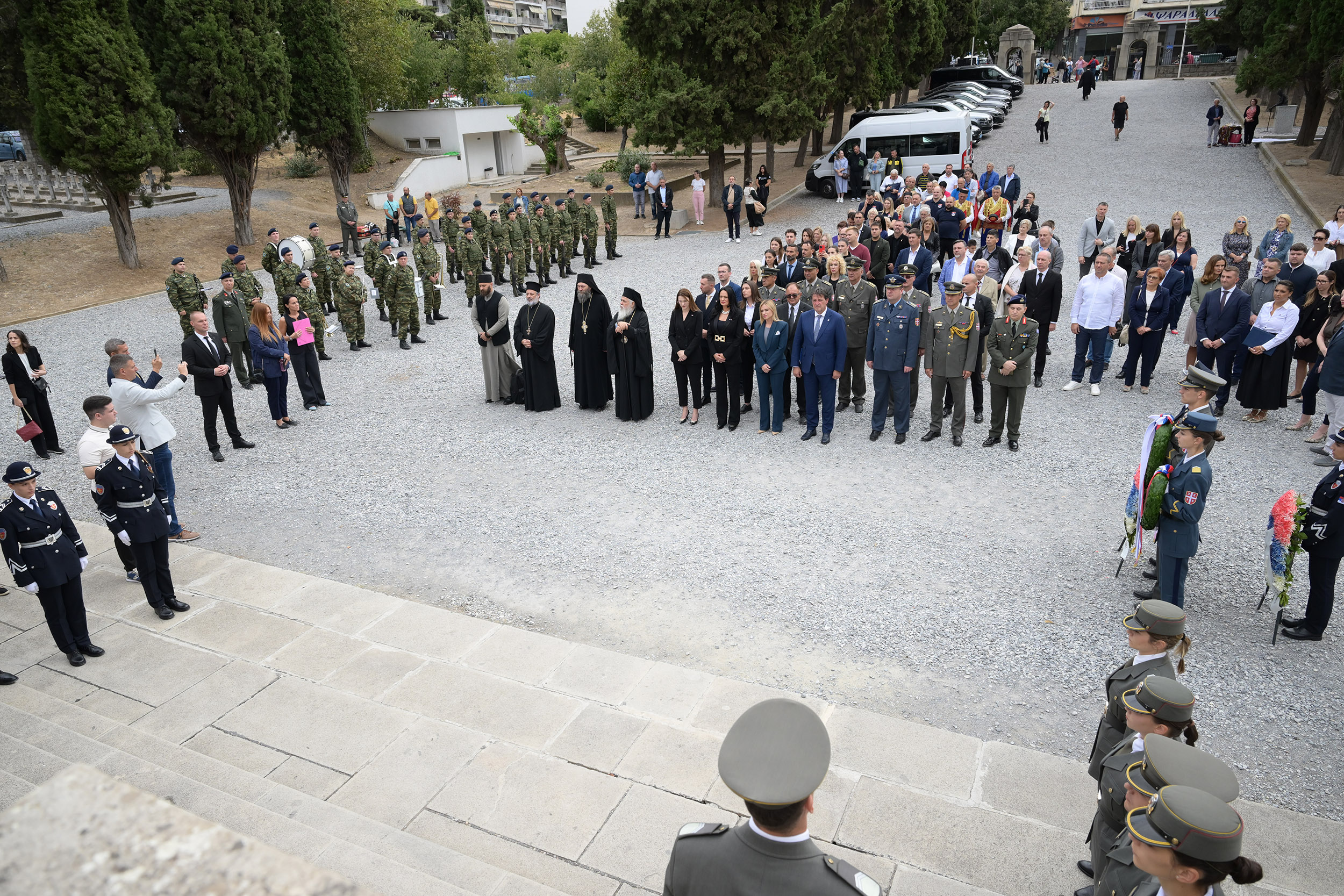 - The final grave at the cemetery was filled in 1973. During the Second World War, the responsibility of taking care of the cemetery fell to Đura Mihailović, who succeeded in protecting it from Nazi looting.
- The final grave at the cemetery was filled in 1973. During the Second World War, the responsibility of taking care of the cemetery fell to Đura Mihailović, who succeeded in protecting it from Nazi looting. The Mihailović family later gave another guardian to Zeitenlik, Đorđe Mihailović, the last male descendant of the family, who not only served as the cemetery’s last caretaker but lived here for 60 years. Đorđe passed away two years ago, and as a recognition of his extraordinary service, his final wish was granted, to be laid to rest here, next to his father and grandfather, at one of the most sacred places built for the Serbian soldiers who fell during the First World War – Minister Gašić said.
The Minister of Defence highlighted that, thanks to the caretakers of Zeitenlik, many generations who came to pay their respects to the fallen Serbian soldiers were able to hear stories that they could not have learned from national history books alone.
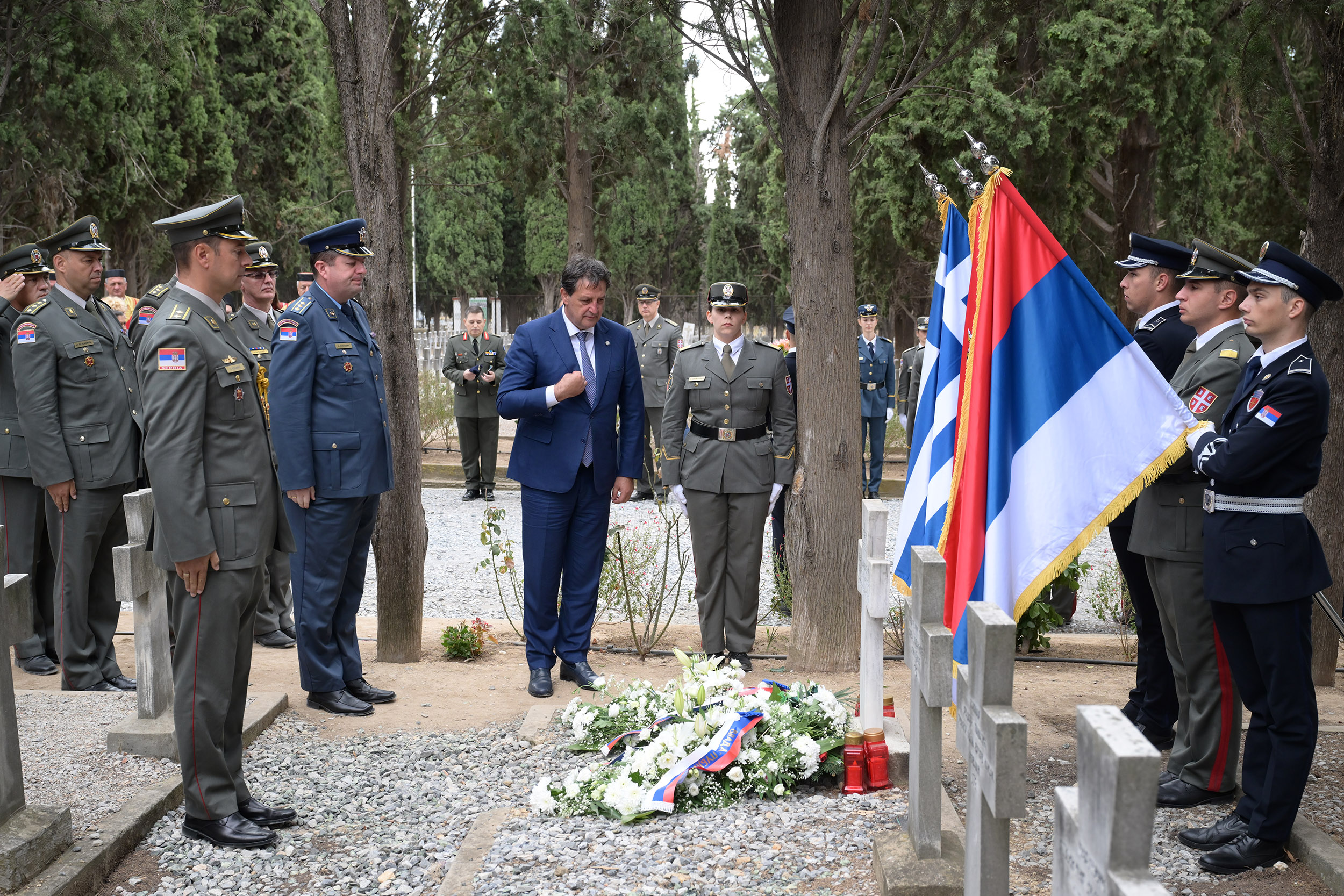 - French academician Jean Dutourd, Knight of the Legion of Honour, spoke about the Serbs who rest here. He delivered a speech at the French Academy on virtue exemplified by the Serbian people: “I know that Serbs are indomitable. Many have sought to subdue them, and some have succeeded, but Serbs have always freed themselves thanks to their energy, strength, patriotism, and above all, their perseverance. The Serbs have an incredible determination to remain true to their identity, they simply refuse to be anything other than Serbs. This is their right and the reason why they deserve every respect” – emphasized Minister Gašić, adding that the Serbian Military Cemetery at Zeitenlik stands as a testament to the fact that the Serbian people’s insistence on their identity has often been accompanied by great suffering throughout history.
- French academician Jean Dutourd, Knight of the Legion of Honour, spoke about the Serbs who rest here. He delivered a speech at the French Academy on virtue exemplified by the Serbian people: “I know that Serbs are indomitable. Many have sought to subdue them, and some have succeeded, but Serbs have always freed themselves thanks to their energy, strength, patriotism, and above all, their perseverance. The Serbs have an incredible determination to remain true to their identity, they simply refuse to be anything other than Serbs. This is their right and the reason why they deserve every respect” – emphasized Minister Gašić, adding that the Serbian Military Cemetery at Zeitenlik stands as a testament to the fact that the Serbian people’s insistence on their identity has often been accompanied by great suffering throughout history.He emphasized that because of the heroes who rest at Zaitenlik, and for the sake of future generations “we have no right to lose heart”.
- Honour has no price. They understood this better than anyone else, defending human dignity and the right to live free. It is our duty to forever preserve their legacy, with a promise that their deeds will never be forgotten. To the heroes of our time to whom we pay tribute today, I would say only this: Rest in peace, knowing that you wrote the history of the victorious – Minister Gašić said.
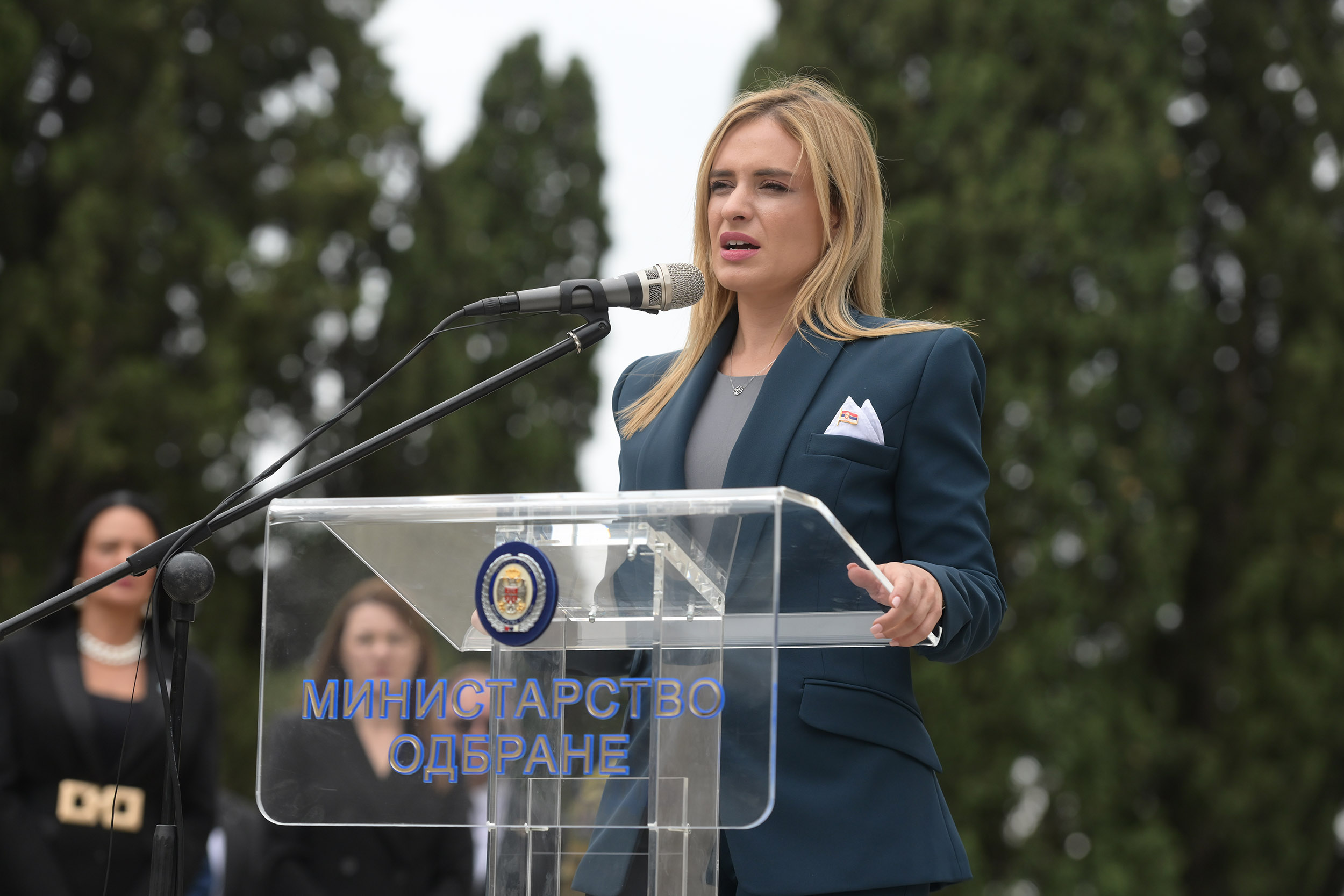 In her address, Minister Đurđević Stamenkovski quoted the words of Đorđe Mihailović, the third caretaker of Zeitenlik from the Mihailović family: “This is not just a military cemetery, this is a small Serbia”. She explained that this was how Đorđe spoke about the place where he lived, and the place he lived for, and that his words, as the last guardian of the Mihailović line, say more than any official statement or speech ever could.
In her address, Minister Đurđević Stamenkovski quoted the words of Đorđe Mihailović, the third caretaker of Zeitenlik from the Mihailović family: “This is not just a military cemetery, this is a small Serbia”. She explained that this was how Đorđe spoke about the place where he lived, and the place he lived for, and that his words, as the last guardian of the Mihailović line, say more than any official statement or speech ever could.- When a group of French nationals came to visit the cemetery, they asked him how he felt when he looked at all these graves. He told them: “You see, gentlemen, they are all dead, but they are not forgotten.” That is the essence of Christian ethics. That is the very core of our message of resurrection, because the resurrection of goodness, love, and sacrifice for the loved ones is the resurrection that awaits all who love their neighbour and who love their homeland – said Minister Đurđević Stamenkovski.
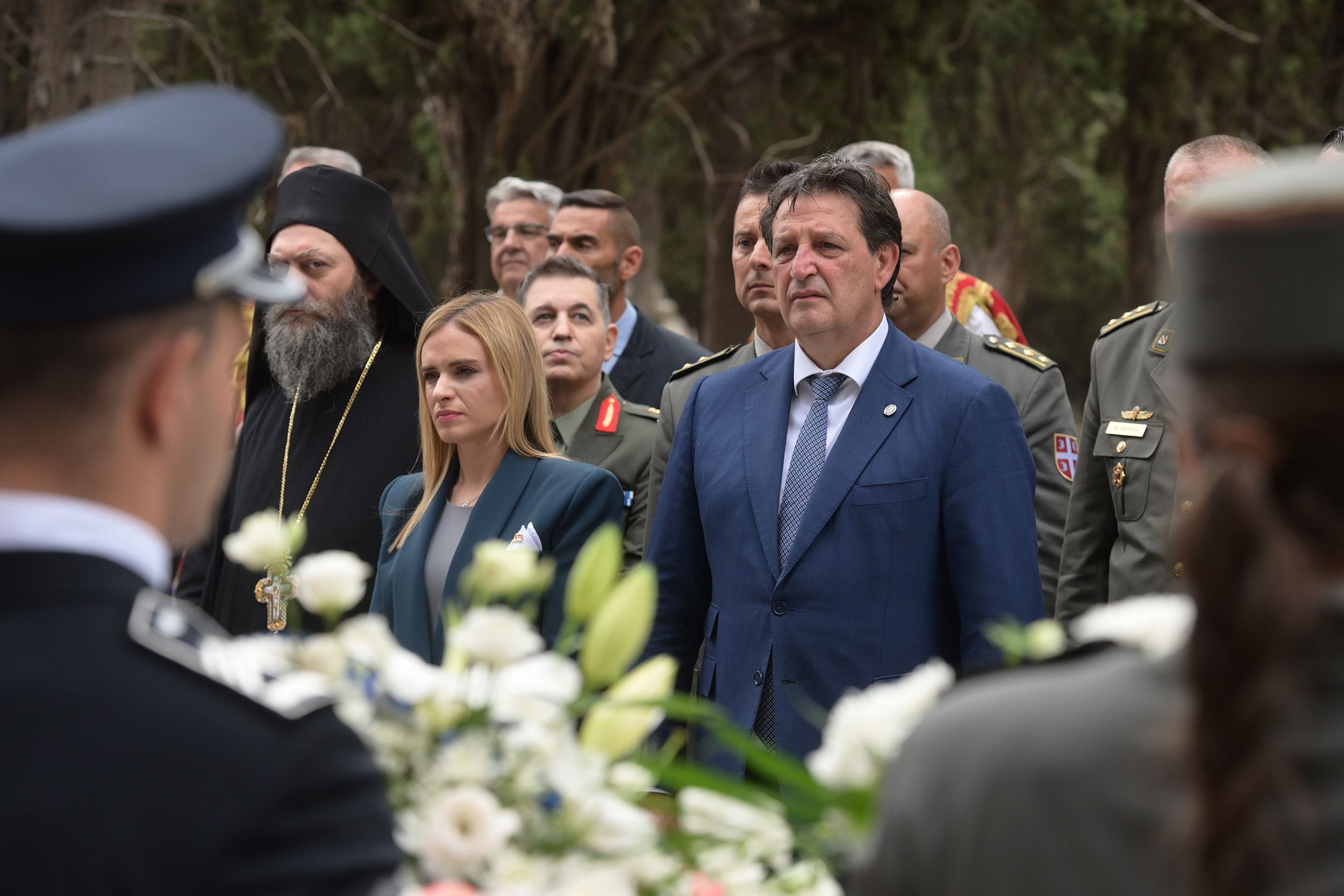 Speaking about the Serbian soldiers buried at Zeitenlik, she noted that historians have tried to explain the remarkable strength of the Serbian army, which, according to her, came down to one core truth, the Kosovo Covenant and Lazar’s choice – that freedom is worth fighting for at any cost, and that sacrifice for one’s homeland is a duty, no matter how great the force on the other side.
Speaking about the Serbian soldiers buried at Zeitenlik, she noted that historians have tried to explain the remarkable strength of the Serbian army, which, according to her, came down to one core truth, the Kosovo Covenant and Lazar’s choice – that freedom is worth fighting for at any cost, and that sacrifice for one’s homeland is a duty, no matter how great the force on the other side.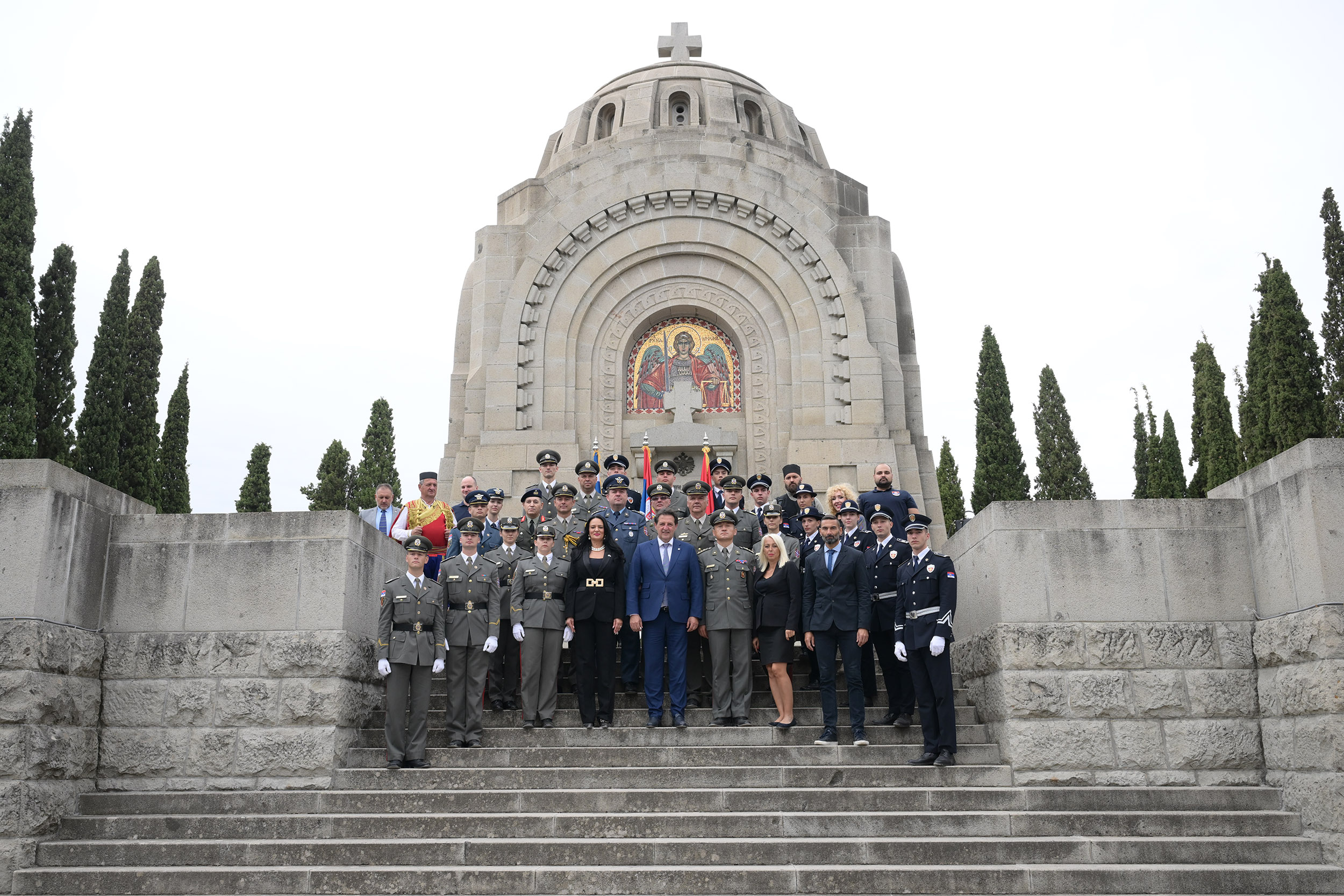 The commemorative ceremony was attended by His Eminence Barnabas of Neapolis and Stavroupolis, Most Venerable Archimandrite Metodije, Abbot of the Royal Lavra, Hilandar Monastery, representatives of the Ministry of Defence and the Serbian Armed Forces, cadets from the Military and Police Academies, as well as representatives of the Hellenic Armed Forces.
The commemorative ceremony was attended by His Eminence Barnabas of Neapolis and Stavroupolis, Most Venerable Archimandrite Metodije, Abbot of the Royal Lavra, Hilandar Monastery, representatives of the Ministry of Defence and the Serbian Armed Forces, cadets from the Military and Police Academies, as well as representatives of the Hellenic Armed Forces.



